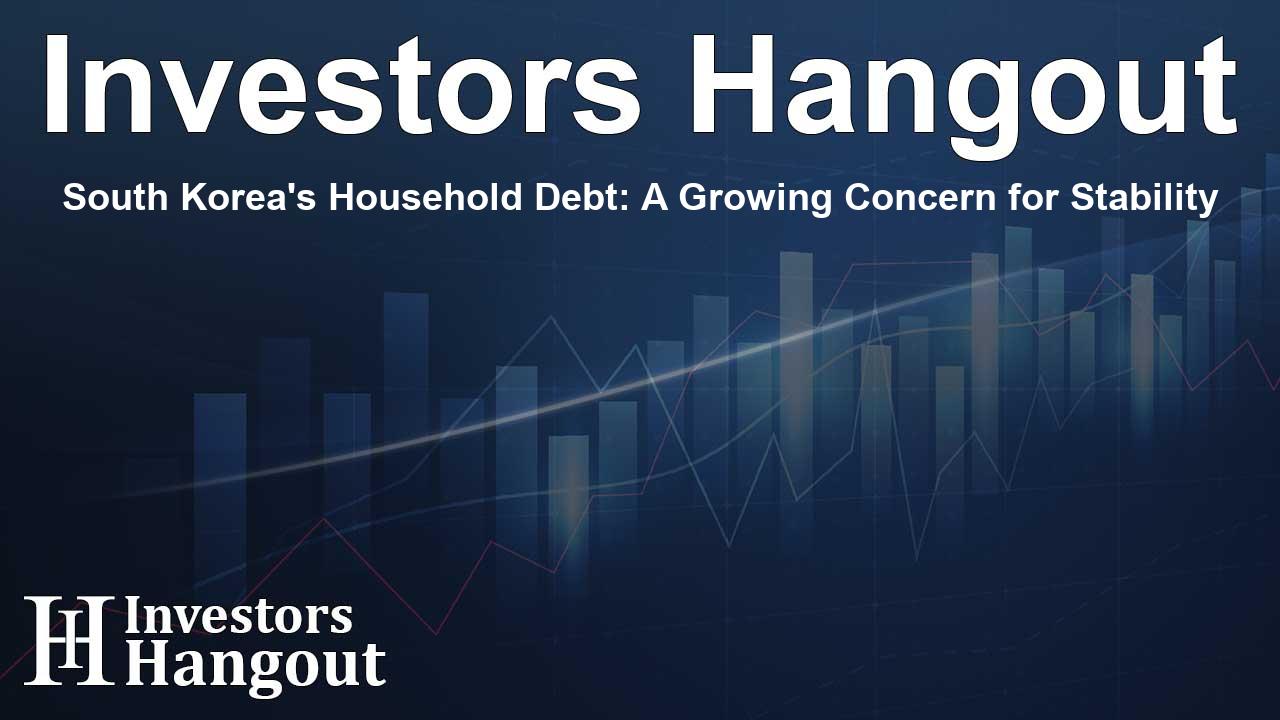South Korea's Household Debt: A Growing Concern for Stability

Rising Household Debt in South Korea
Taking a close look at South Korea's financial landscape, the alarming growth of household debt is a topic that has recently garnered significant attention. The remarks from the head of the country's financial watchdog shed light on how this rapid acceleration in debt could pose a threat to the entire economy.
The Warning from Financial Authorities
During a crucial meeting with local banks, the chief of the financial authority raised an important point: as household debt surges, the potential for systemic risk also rises. Lee Bok-hyun emphasized that the repercussions of this trend could be dire, particularly if real estate prices experience a significant downturn.
The Implications of Debt Accumulation
Lee’s apprehension is rooted in the observed financial imbalances that could affect the overall stability of the nation’s economy. With the household debt rapidly climbing, there is a chance that if home prices were to drop, the situation could exacerbate existing vulnerabilities in the financial system.
Household Debt-to-Economy Ratio in Perspective
A notable concern is that South Korea maintains one of the highest household debt-to-GDP ratios around the globe. Over 60% of loans from domestic banks are tied to mortgages, indicating a heavy reliance on real estate as a collateral for borrowing.
Broader Economic Concerns
This scenario leads to a precarious position for many households, making them vulnerable to any fluctuations in the housing market. If home values decline, the financial burden could become overwhelming, thereby impacting personal finances and broader economic sentiment.
Potential Solutions and Future Outlook
While the financial watchdog has been monitoring the situation closely, there’s a pressing need for proactive measures to mitigate risks. As policymakers deliberate potential strategies, adaptive responses will be essential to ensure a balanced approach that maintains economic growth without succumbing to excessive debt levels.
Frequently Asked Questions
What is the current state of household debt in South Korea?
Household debt in South Korea is rapidly increasing, with a significant portion tied to mortgages, raising concerns of potential systemic risk.
Why is the financial watchdog concerned about household debt?
The financial watchdog is worried that rising household debt may lead to financial instability, especially if housing prices decline significantly.
What actions are being considered to address these concerns?
Policymakers are looking into various proactive measures to mitigate risks associated with high household debt and maintain financial stability.
How does South Korea's household debt compare globally?
South Korea's household debt-to-GDP ratio is among the highest in the world, indicating a heavy reliance on borrowing against real estate.
What impact could a downturn in housing prices have?
A downturn in housing prices could lead to significant financial strain on households, increasing the likelihood of systemic risk within the economy.
About The Author
Contact Ryan Hughes privately here. Or send an email with ATTN: Ryan Hughes as the subject to contact@investorshangout.com.
About Investors Hangout
Investors Hangout is a leading online stock forum for financial discussion and learning, offering a wide range of free tools and resources. It draws in traders of all levels, who exchange market knowledge, investigate trading tactics, and keep an eye on industry developments in real time. Featuring financial articles, stock message boards, quotes, charts, company profiles, and live news updates. Through cooperative learning and a wealth of informational resources, it helps users from novices creating their first portfolios to experts honing their techniques. Join Investors Hangout today: https://investorshangout.com/
The content of this article is based on factual, publicly available information and does not represent legal, financial, or investment advice. Investors Hangout does not offer financial advice, and the author is not a licensed financial advisor. Consult a qualified advisor before making any financial or investment decisions based on this article. This article should not be considered advice to purchase, sell, or hold any securities or other investments. If any of the material provided here is inaccurate, please contact us for corrections.
